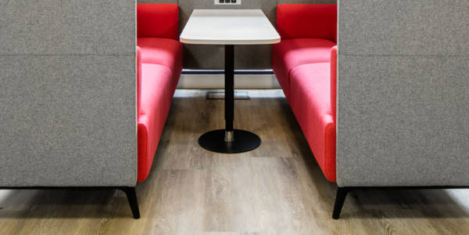To provide the best experiences, we use technologies like cookies to store and/or access device information. Consenting to these technologies will allow us to process data such as browsing behaviour or unique IDs on this site. Not consenting or withdrawing consent, may adversely affect certain features and functions.
The technical storage or access is strictly necessary for the legitimate purpose of enabling the use of a specific service explicitly requested by the subscriber or user, or for the sole purpose of carrying out the transmission of a communication over an electronic communications network.
The technical storage or access is necessary for the legitimate purpose of storing preferences that are not requested by the subscriber or user.
The technical storage or access that is used exclusively for statistical purposes.
The technical storage or access that is used exclusively for anonymous statistical purposes. Without a subpoena, voluntary compliance on the part of your Internet Service Provider, or additional records from a third party, information stored or retrieved for this purpose alone cannot usually be used to identify you.
The technical storage or access is required to create user profiles to send advertising, or to track the user on a website or across several websites for similar marketing purposes.
 2020 has been the most stressful year in history for the global workforce and people want robots to help, according to a new study by Oracle and Workplace Intelligence, an HR research and advisory firm. The study of more than 12,000 employees, managers, HR leaders, and C-level executives across 11 countries claims that the COVID-19 pandemic has increased workplace stress, anxiety, burnout and other mental health issues for people all around the world, and would prefer a robot instead of other people to help. (more…)
2020 has been the most stressful year in history for the global workforce and people want robots to help, according to a new study by Oracle and Workplace Intelligence, an HR research and advisory firm. The study of more than 12,000 employees, managers, HR leaders, and C-level executives across 11 countries claims that the COVID-19 pandemic has increased workplace stress, anxiety, burnout and other mental health issues for people all around the world, and would prefer a robot instead of other people to help. (more…)







 The roles of scientists change as research teams become more interdisciplinary and larger, claims new research from
The roles of scientists change as research teams become more interdisciplinary and larger, claims new research from 
 New research from recruitment agency
New research from recruitment agency 
 New research from financial advice and investment network
New research from financial advice and investment network 
 New independent polling commissioned by the
New independent polling commissioned by the 

















October 7, 2020
An unexpected partnership: How tech and business leaders can learn from each other
by Alexia Pedersen • Comment, Technology